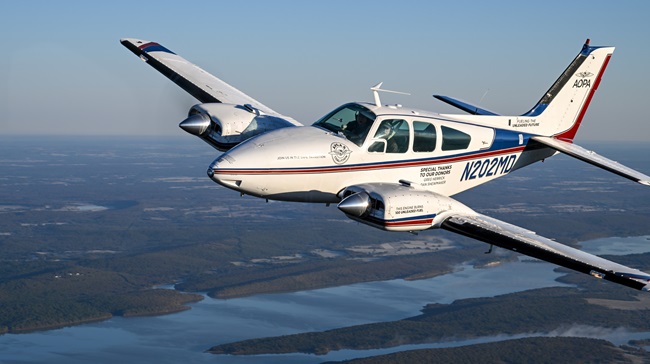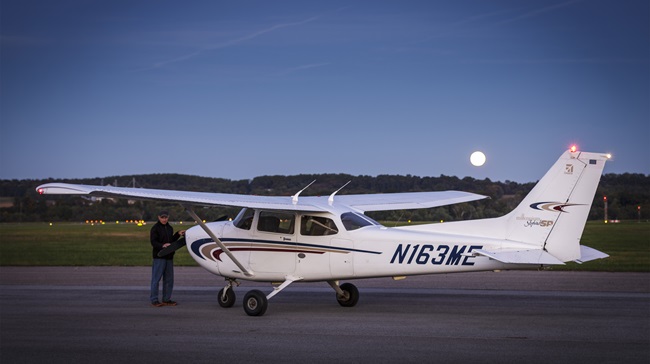AOPA: GAO audit of FBO pricing misses the mark
After more than a year of investigation, the Government Accountability Office (GAO) released its congressionally mandated report on FBO pricing and FAA oversight of requirements airports must follow to obtain federal grants for airside safety project improvements.
The November report has an extensive analysis of fuel pricing data—information that is widely published and easily available to end users. However, and unfortunately, the report skims over other charges pilots could potentially incur, including ramp, tiedown, security, facility, infrastructure, and access fees. It appears that the GAO did little in this area because these fees are difficult to discover, which is exactly the point that AOPA has been making for some time now. There is no reason that all fees charged by FBOs shouldn’t be transparent, not just fuel prices.
The report continues, “As of March 2019, we identified 3,070 FBOs operating at 3,016 airports located in the contiguous United States; these airports are included in FAA’s National Plan of Integrated Airport Systems (NPIAS).”
Per the federal Airport Improvement Program (AIP), airports receiving grants are obligated to charge “fair, reasonable, and non-discriminatory fees and prices.” Rep. Sam Graves (R-Mo.), the Ranking Member of the House Transportation and Infrastructure Committee, asked the GAO to review FBO prices and transparency and FAA’s oversight of grant assurances to airports, totaling more than $37 billion since 2007.
While pricing issues have been raised about some FBOs, AOPA has long contended that the lion’s share of FBOs are fair in their pricing and perform outstanding services. In this same vein, the GAO also concluded that FBO pricing was not a widespread issue, but the lackadaisical report glossed over pricing transparency and made no real mention of key issues surrounding public-use airports. Its lack of probing FBO fees and the satisfying of airport grant requirement issues is shockingly shallow.
Historically, the GAO has been a watchdog agency that answers difficult questions through fact finding and using tough methodologies. However, this report misses both depth and analysis. The GAO found that “some” FBOs post fees. What percentage does “some” constitute? Do half post fees? Do 10 percent of FBOs post fees? And since fees aren’t posted publicly, how does the FAA, or anyone for that matter, know if airports are complying with federal rules that require prices be reasonable or, at the very least, not “unjustly discriminatory”? Further, why should the pilot community be unduly burdened by having to take extra steps to find out prices? If it is possible for airports to post fees online, why should the pilot need to make phone calls, give up personal information such as their aircraft’s registration number, or be forced to join a loyalty club to find out those fees?
The GAO report dismisses other fees entirely, writing, “According to FBO staff we spoke with, fees for services other than fueling can be lengthy and unwieldy to post on their websites….” In other words, the GAO gave FBOs a pass simply because FBO staff said it would be difficult to post their own overly complicated fees online.
It is disappointing that the GAO, the guardian of taxpayer dollars, failed to thoroughly address all aspects of federal grant requirements. The report reflects a complete lack of contextual knowledge of the industry and how it is intended to operate.
AOPA has received complaints from pilots that some airports and FBOs were setting a bad precedent in charging excessive fees for services not needed or wanted, along with a widespread lack of transparency of those fees. While most FBOs charge fair and reasonable fees for welcomed services, others—particularly those in monopoly situations—do not publish rates and charges, often surprising pilots with higher-than-expected fees.
The report also suggests that pilots should go elsewhere if the airport’s fees are undisclosed or too high, even though the alternate site could be 30 or more miles away from the intended destination. However, per FAA rules, community airports are meant to be available to all pilots and the traveling public on reasonable terms. A lack of transparency is not reasonable, and therefore denies pilots access to these airports. The GAO totally missed the mark on this one.
A brief mention of the Know Before You Go guidelines appears in the report. These guidelines are a set of recommended best practices to enhance FBO transparency and were spearheaded by AOPA and five industry associations in 2018. However, response to the Know Before You Go program has been sluggish with only 300 FBOs posting their fees for piston and turbine aircraft. With a lack of openness and clarity, it becomes virtually impossible to monitor FAA rules requiring reasonable, nondiscriminatory pricing and charges. Again, we come back to the idea that it is virtually impossible to know if an airport is meeting its federal grant obligations for reasonableness if the airport doesn’t require its tenants—the FBOs—to make their fees easily accessible to the public.
Finally, the GAO audit lacks any mention of airport charting and parking—a major issue when it comes to transparency at public-use airports. Nonetheless, AOPA continues to work closely with industry leaders including the American Association of Airport Executives and Airports Council International to develop standardized nomenclature for aircraft parking areas at publicly funded airports. Standardized labeling and highlighting of alternative parking on airport charts, where available, would allow pilots to utilize FBO services if required or simply park in areas where services are not needed. These charting updates would reflect the positive relationships between airport authorities, management, and the GA community.
AOPA believes that pilots, owners, and operators should not have to go through multiple steps to find information about charges and fees at airports. In order for fees to be considered reasonable, they must be clear, well communicated, and easily accessible online.
FBOs are encouraged to disclose and update their fees via AOPA’s online Airport Directory to promote best practices and foster competition at all U.S. airports. Pilots can rate airports, FBOs, and other airport businesses on the site and leave comments about their experiences.



